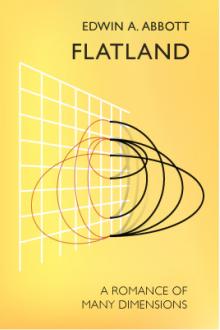Lorna Doone: A Romance of Exmoor by R. D. Blackmore (list of e readers TXT) 📖

- Author: R. D. Blackmore
Book online «Lorna Doone: A Romance of Exmoor by R. D. Blackmore (list of e readers TXT) 📖». Author R. D. Blackmore
Nothing could stop me; it was not long, although to me it seemed an age, before I stood in the niche of rock at the head of the slippery watercourse, and gazed into the quiet glen, where my foolish heart was dwelling. Notwithstanding doubts of right, notwithstanding sense of duty, and despite all manly striving, and the great love of my home, there my heart was ever dwelling, knowing what a fool it was, and content to know it.
Many birds came twittering round me in the gold of August; many trees showed twinkling beauty, as the sun went lower; and the lines of water fell, from wrinkles into dimples. Little heeding, there I crouched; though with sense of everything that afterwards should move me, like a picture or a dream; and everything went by me softly, while my heart was gazing.
At last, a little figure came, not insignificant (I mean), but looking very light and slender in the moving shadows, gently here and softly there, as if vague of purpose, with a gloss of tender movement, in and out the wealth of trees, and liberty of the meadow. Who was I to crouch, or doubt, or look at her from a distance; what matter if they killed me now, and one tear came to bury me? Therefore I rushed out at once, as if shot-guns were unknown yet; not from any real courage, but from prisoned love burst forth.
I know not whether my own Lorna was afraid of what I looked, or what I might say to her, or of her own thoughts of me; all I know is that she looked frightened, when I hoped for gladness. Perhaps the power of my joy was more than maiden liked to own, or in any way to answer to; and to tell the truth, it seemed as if I might now forget myself; while she would take good care of it. This makes a man grow thoughtful; unless, as some low fellows do, he believe all women hypocrites.
Therefore I went slowly towards her, taken back in my impulse; and said all I could come to say, with some distress in doing it.
'Mistress Lorna, I had hope that you were in need of me.'
'Oh, yes; but that was long ago; two months ago, or more, sir.' And saying this she looked away, as if it all were over. But I was now so dazed and frightened, that it took my breath away, and I could not answer, feeling sure that I was robbed and some one else had won her. And I tried to turn away, without another word, and go.
But I could not help one stupid sob, though mad with myself for allowing it, but it came too sharp for pride to stay it, and it told a world of things. Lorna heard it, and ran to me, with her bright eyes full of wonder, pity, and great kindness, as if amazed that I had more than a simple liking for her. Then she held out both hands to me; and I took and looked at them.
'Master Ridd, I did not mean,' she whispered, very softly, 'I did not mean to vex you.'
'If you would be loath to vex me, none else in this world can do it,' I answered out of my great love, but fearing yet to look at her, mine eyes not being strong enough.
'Come away from this bright place,' she answered, trembling in her turn; 'I am watched and spied of late. Come beneath the shadows, John.'
I would have leaped into the valley of the shadow of death (as described by the late John Bunyan), only to hear her call me 'John'; though Apollyon were lurking there, and Despair should lock me in.
She stole across the silent grass; but I strode hotly after her; fear was all beyond me now, except the fear of losing her. I could not but behold her manner, as she went before me, all her grace, and lovely sweetness, and her sense of what she was.
She led me to her own rich bower, which I told of once before; and if in spring it were a sight, what was it in summer glory? But although my mind had notice of its fairness and its wonder, not a heed my heart took of it, neither dwelt it in my presence more than flowing water. All that in my presence dwelt, all that in my heart was felt, was the maiden moving gently, and afraid to look at me.
For now the power of my love was abiding on her, new to her, unknown to her; not a thing to speak about, nor even to think clearly; only just to feel and wonder, with a pain of sweetness. She could look at me no more, neither could she look away, with a studied manner—only to let fall her eyes, and blush, and be put out with me, and still more with herself.
I left her quite alone; though close, though tingling to have hold of her. Even her right hand was dropped and lay among the mosses. Neither did I try to steal one glimpse below her eyelids. Life and death to me were hanging on the first glance I should win; yet I let it be so.
After long or short—I know not, yet ere I was weary, ere I yet began to think or wish for any answer—Lorna slowly raised her eyelids, with a gleam of dew below them, and looked at me doubtfully. Any look with so much in it never met my gaze before.
'Darling, do you love me?' was all that I could say to her.
'Yes, I like you very much,' she answered, with her eyes gone from me, and her dark hair falling over, so as not to show me things.
'But do you love me, Lorna, Lorna; do you love me more than all the world?'
'No, to be sure not. Now why should I?'
'In truth, I know not why you should. Only I hoped that you did, Lorna. Either love me not at all, or as I love you for ever.'
'John I love you very much; and I would not grieve you. You are the bravest, and the kindest, and the simplest of all men—I mean of all people—I like you very much, Master Ridd, and I think of you almost every day.'
'That will not do for me, Lorna. Not almost every day I think, but every instant of my life, of you. For you I would give up my home, my love of all the world beside, my duty to my dearest ones, for you I would give up my life, and hope of life beyond it. Do you love me so?'
'Not by any means,' said Lorna; 'no, I like you very much, when you do not talk so wildly; and I like to see you come as if you would fill our valley up, and I like to think that even Carver would be nothing in your hands—but as to
 Have you ever thought about what fiction is? Probably, such a question may seem surprising: and so everything is clear. Every person throughout his life has to repeatedly create the works he needs for specific purposes - statements, autobiographies, dictations - using not gypsum or clay, not musical notes, not paints, but just a word. At the same time, almost every person will be very surprised if he is told that he thereby created a work of fiction, which is very different from visual art, music and sculpture making. However, everyone understands that a student's essay or dictation is fundamentally different from novels, short stories, news that are created by professional writers. In the works of professionals there is the most important difference - excogitation. But, oddly enough, in a school literature course, you don’t realize the full power of fiction. So using our website in your free time discover fiction for yourself.
Have you ever thought about what fiction is? Probably, such a question may seem surprising: and so everything is clear. Every person throughout his life has to repeatedly create the works he needs for specific purposes - statements, autobiographies, dictations - using not gypsum or clay, not musical notes, not paints, but just a word. At the same time, almost every person will be very surprised if he is told that he thereby created a work of fiction, which is very different from visual art, music and sculpture making. However, everyone understands that a student's essay or dictation is fundamentally different from novels, short stories, news that are created by professional writers. In the works of professionals there is the most important difference - excogitation. But, oddly enough, in a school literature course, you don’t realize the full power of fiction. So using our website in your free time discover fiction for yourself. 




Comments (0)